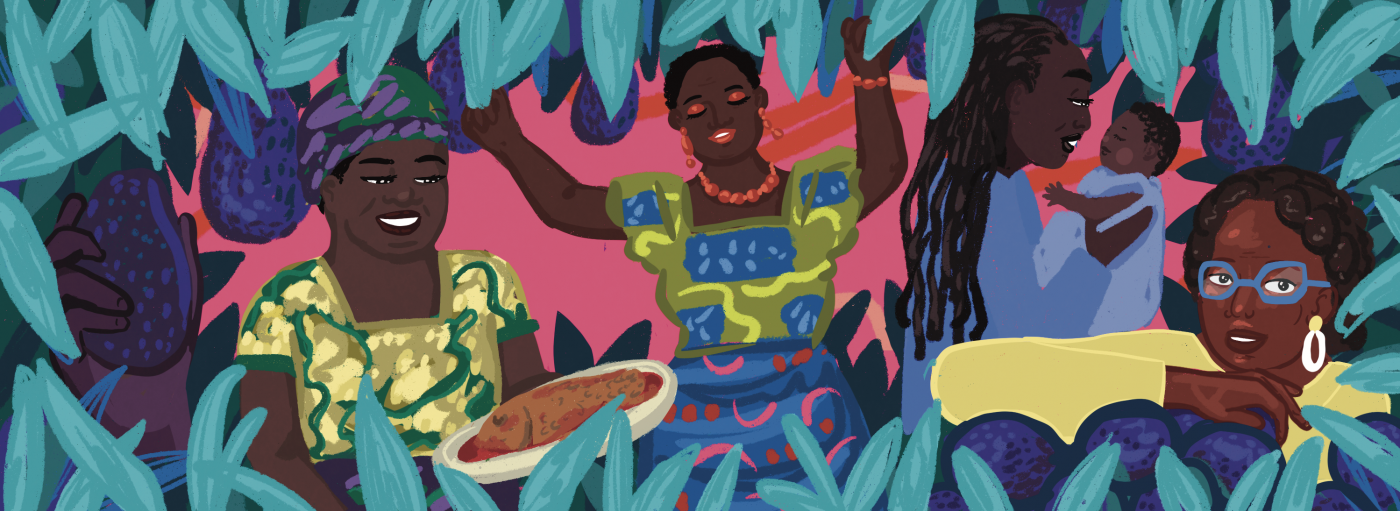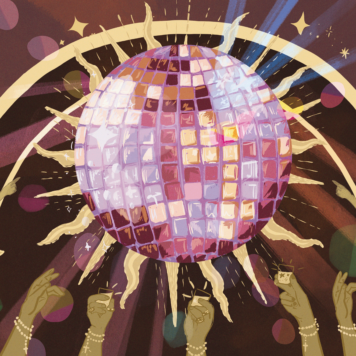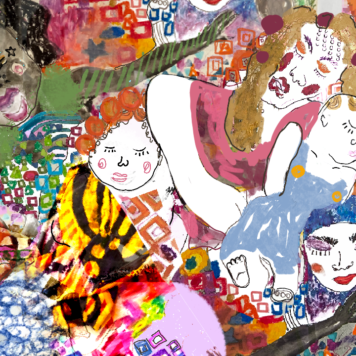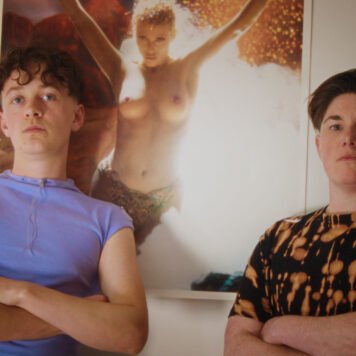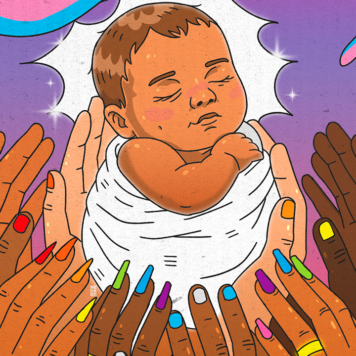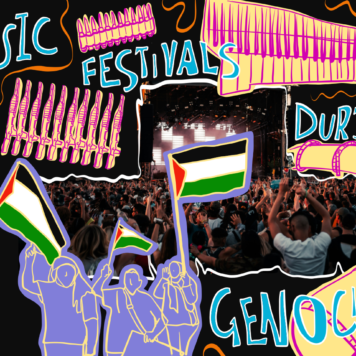Growing up, did anyone else get confused about which aunties were actually related to them? To me, it felt like any older woman who wasn’t my mum or a teacher was somehow my auntie, understandably because that’s how they were introduced.
Now at the age of 20, I still feel distinctly uncomfortable hearing anyone call an older woman by their first name, let alone daring to myself. I can feel my mother’s hard side-eye just thinking about it.
Memories
I was raised by a plethora of aunties, both here in the UK and back home in Malawi and Zambia, and I know I wouldn’t be myself without them. Most knew my parents from before I was born and had also moved to the UK in the early 2000s, so I spent a lot of my early childhood in Milton Keynes around them, going to their garden cookouts in the summer and being picked up by them from school when Mum and Dad were working.
My aunties were a big part of the reason why it was so difficult to leave when we moved back to Malawi when I was 11. I remember crying as we went through security in Heathrow, knowing that it would be months, maybe years, before I saw the auntie that had dropped us off at the departure gate.
But moving back to Malawi, and eventually Zambia, meant getting to know other aunties, women who were important to my mother and her mother, the grandma I don’t remember.
My mum’s sister picked us up from the airport, and we ended up living with her for three months in a pale pink house already overflowing with people she was caring for. The house was bigger than any I’d seen in England, with high engraved ceilings, cool glass tiles and chickens picking their way over the verandah. But it still shouldn’t have worked – there was no way my auntie, some of her children and their families, other cousins, a couple of people who weren’t even related to us, plus my own family should have been able to fit, let alone get along comfortably in the long term.
Somehow though, she never made us feel anything less than welcome, even when we were there for months on end.
Despite the distance, I remained close with many of my aunties in the UK. A couple of them visited us in Malawi, and when we came back to visit the UK one summer, one of them let us stay with her for a while. She gave my mum her bedroom, so we both slept in the living room, her on the sofa, me on a mattress.
I remember we chatted for ages, giggling over silly Instagram videos and recalling old stories from when my sister and I were little – our days out to the city centre or the lake or the park; our spontaneous garden get-togethers on long summer evenings; plates filled with boerewores and bright yellow fried rice; fragrant smoke from the barbecue curling into the sky.
So many of my memories of growing up in a community surrounded by aunties revolve around sharing food as a way to bring people together. And everyone knows that food made by aunties is something else.
One auntie in Zambia owns a restaurant, and if I close my eyes I can smell her fried fish in tomato gravy, tinged with the scent of gas heaters. Another sprinkles garlic powder on the massive avocados she picks from a tree in her back garden, their dark mottled skin blending with her own in the leafy shadows – and I do the same with Tesco’s sad little overpriced fruits that taste nothing like the ones ripened in the humidity of Malawi’s January rains. And I still roast vegetables the way another taught me, with salt and rosemary and paprika.
Food made by aunties says: you might not be the flesh of my flesh, but you are welcome to sit at my table and eat, and I won’t expect anything from you in return.
The art of being an auntie
A couple of days before Christmas last year, I became an auntie myself, in the traditional sense of the word. Before my niece’s birth, I’d questioned whether I wanted to be known as Auntie Davina. My aunties have played such an intrinsic role in my own growth, and it initially felt daunting to even try to live up to them. Eventually though, I decided to accept the name, and have come to realise that it’s a privilege to play that role in someone else’s life.
Relationships with the people who raised you always have their complexities. These are all the more intricate for those of us in the diaspora or with cross-cultural backgrounds, who may struggle to navigate differences in values or beliefs. But I’ve learned that it’s important to acknowledge that these people are also complex (perhaps in ways that are not obvious from my point of view), that they did their best, and to honour the sacrifices they made in order to give me the opportunities I now have.
One of the most significant things my aunties have taught me is that there are a myriad of ways to embody Blackness. No two aunties are the same, and seeing various forms of expression has given me the freedom to explore what being Black means for me, beyond social expectations.
Some of the stereotypes sometimes do apply, of course – for example, lots of my aunties love to dance. You should see them at weddings, dressed in their bright chitenge dresses and headwraps, forming circles, hyping each other up, embodying joy.
But lots of my aunties take up space where Black women seem underrepresented, at least here in the UK.
For example, I have aunties who taught me to love the outdoors and being in nature by encouraging me to go outside, taking me to parks and woods and lakes, letting me eat blackberries and pick up bugs and climb trees. And lots of my aunties who live in Malawi and Zambia are keen gardeners and farmers.
I don’t think I would be studying Environmental Science or be as involved in environmental activism if they hadn’t cultivated in me such love for the Earth. However, Black women are consistently left out of depictions and media coverage of the outdoors, leading to stereotypes like, ‘Black people generally prefer urban environments’ or ‘Black people can’t swim’, which are simply untrue.
Blackness is expansive and Black joy can be found in a multitude of ways.

Join our mailing list
Sign up for shado's picks of the week! Dropping in your inbox every Friday, we share news from inside shado + out, plus job listings, event recommendations and actions ✊
Sign up for shado's picks of the week! Dropping in your inbox every Friday, we share news from inside shado + out, plus job listings, event recommendations and actions ✊
As someone who currently doesn’t want children of their own, my aunties have shown me that families are more than the Western nuclear model of mother, father and kids.
There are so many ways to care for people, and being related by blood isn’t a prerequisite. I know that I can still participate in shaping younger generations without necessarily being someone’s biological mother. In their unique role, aunties expand definitions, blur boundaries, and crucially reimagine our ways of being part of a community.
Becoming a good ancestor
I’ve been thinking about being a good ancestor recently.
In Indigenous cultures across the world, this recognises that today’s actions will have consequences that echo through time, affecting the generations which come after us. As such, we must live with their futures in mind.
Throughout my life, I’ve witnessed the way that aunties perceive the world from this community-minded perspective. My aunties know, and have taught me, that it is not enough to only look out for your own, especially when there is more than enough for everyone at the table.
It is unsurprising to me, then, that it is often the same aunties in Black and Indigenous communities who are at the forefront of social justice movements all over the world. There is so much we could all learn from them about radical hospitality, generosity, community – and most of all, joy.
For me, it is the practice and action of joy that is really the root of being a good auntie. They do what they do to bring joy to their communities, rather than solely out of a sense of obligation.
Often it is simply their presence that creates that joy.
There isn’t really anything quite like an auntie laughing, nothing like the love that emanates from them as they reach out to hold you in their arms.
And, as Auntie Davina, let me tell you, the feeling is mutual – there is nothing like the joy I feel when I’m with my niece and she smiles up at me or reaches out her tiny hand to clasp my finger.
I hope to be a source of joy throughout her life too, from doing smaller things like taking her to the library and buying her ice-cream, to showing her the world and supporting her as she does extraordinary things. Most importantly, I want her to feel part of a safe, loving community, because there is joy to be found in being together.
What can you do?
- Read: All We Can Save, an anthology edited by Dr. Ayana Johnson and Dr. Katharine Wilkinson. This collection of essays and poetry by women involved in working for climate justice is an inspiring feminist resource, particularly when considering the role of community and inclusion in finding solutions to social issues.
- Listen: Growing up with gal-dem is one of my favourite podcasts where they interview guests each week about a letter or diary entry from their younger selves. Lots of the guests are older Black women with so much wisdom and experience, so it feels like having a chat with an auntie.
- Listen: Here is the Spotify playlist I made for my niece when she was a few days old. I’m excited to see her explore music, and hopefully will get to introduce her to a wide range of genres and artists.
This piece is the winning article of The Black Joy Commission in collaboration with Seven Black Women & BLK Brit


